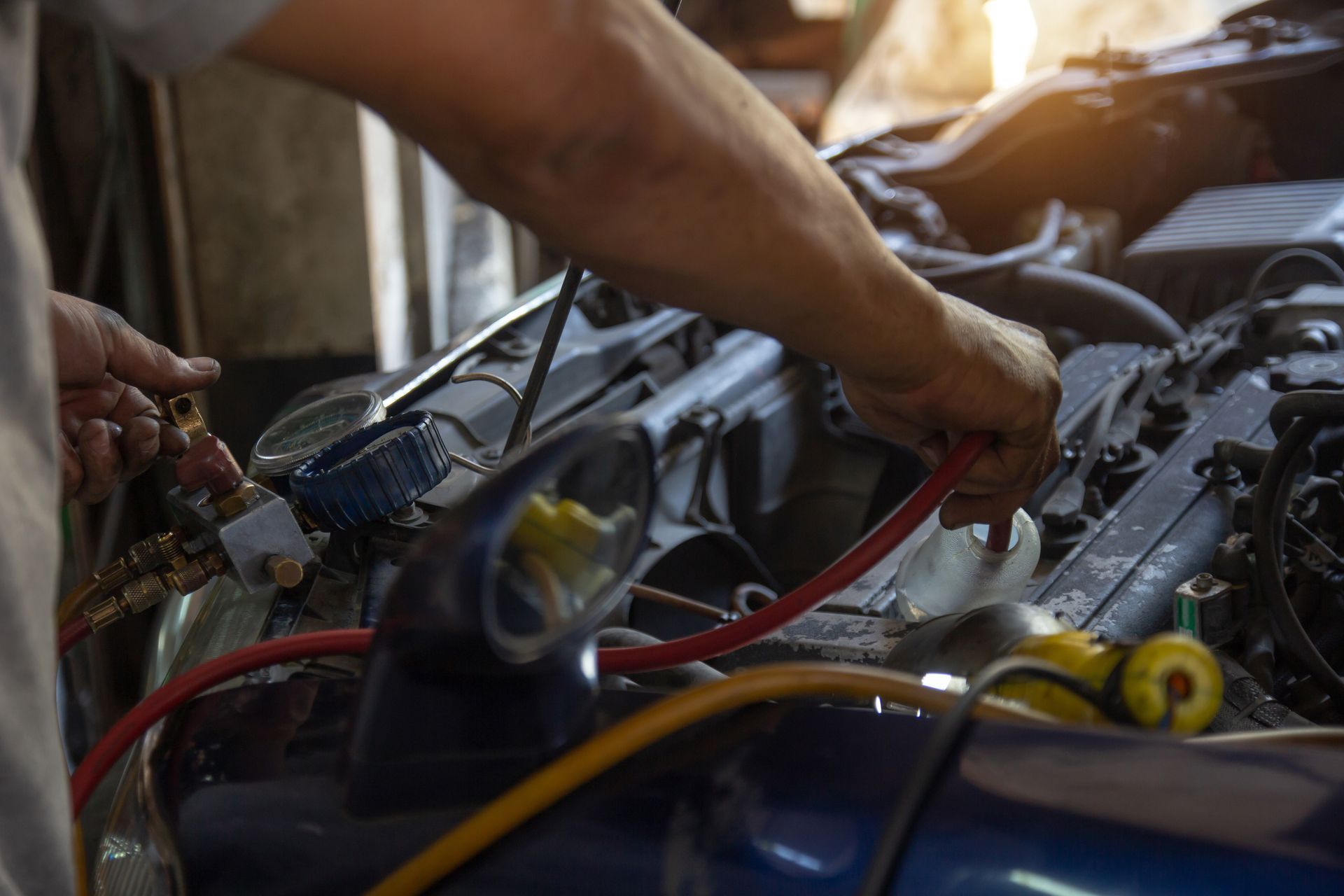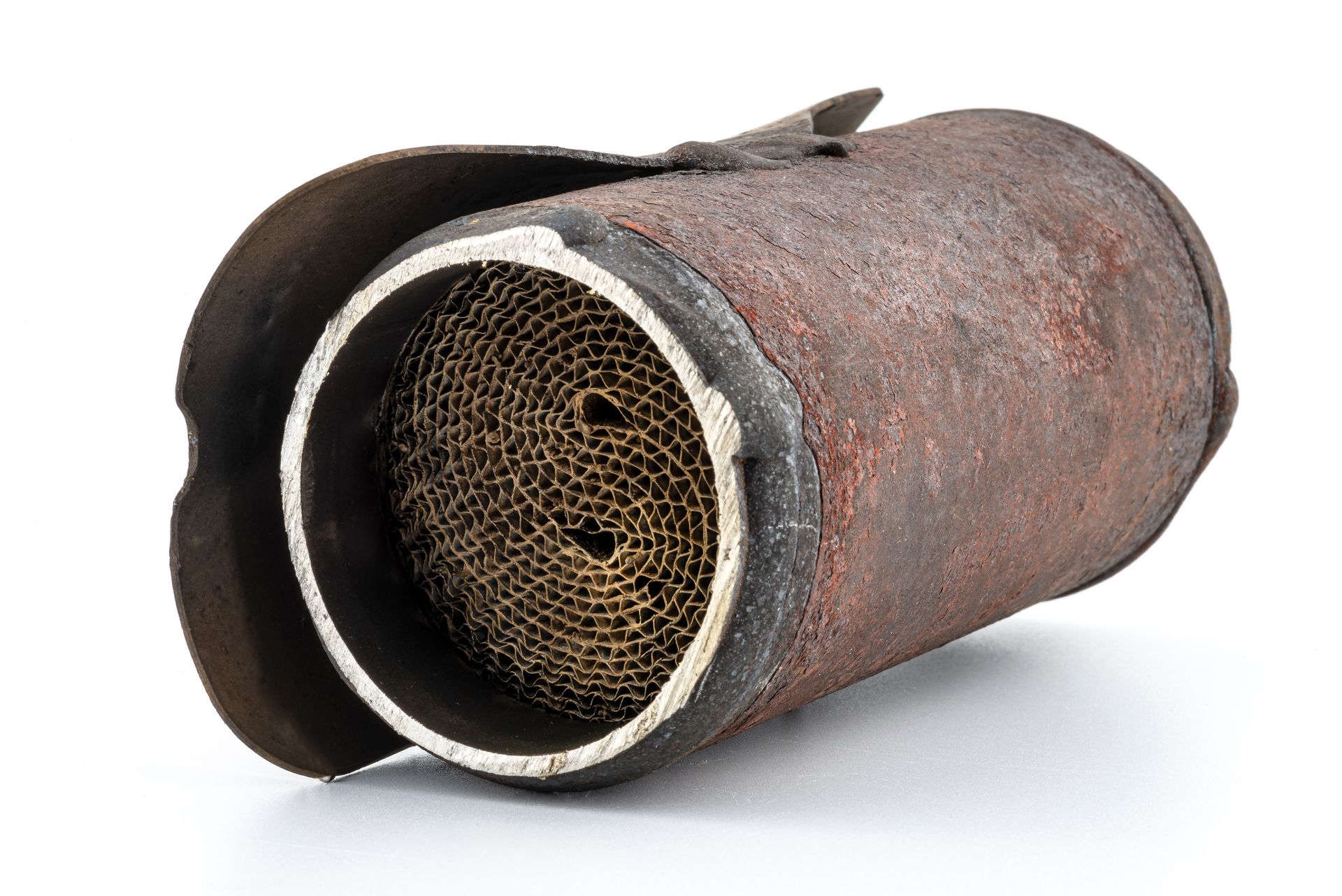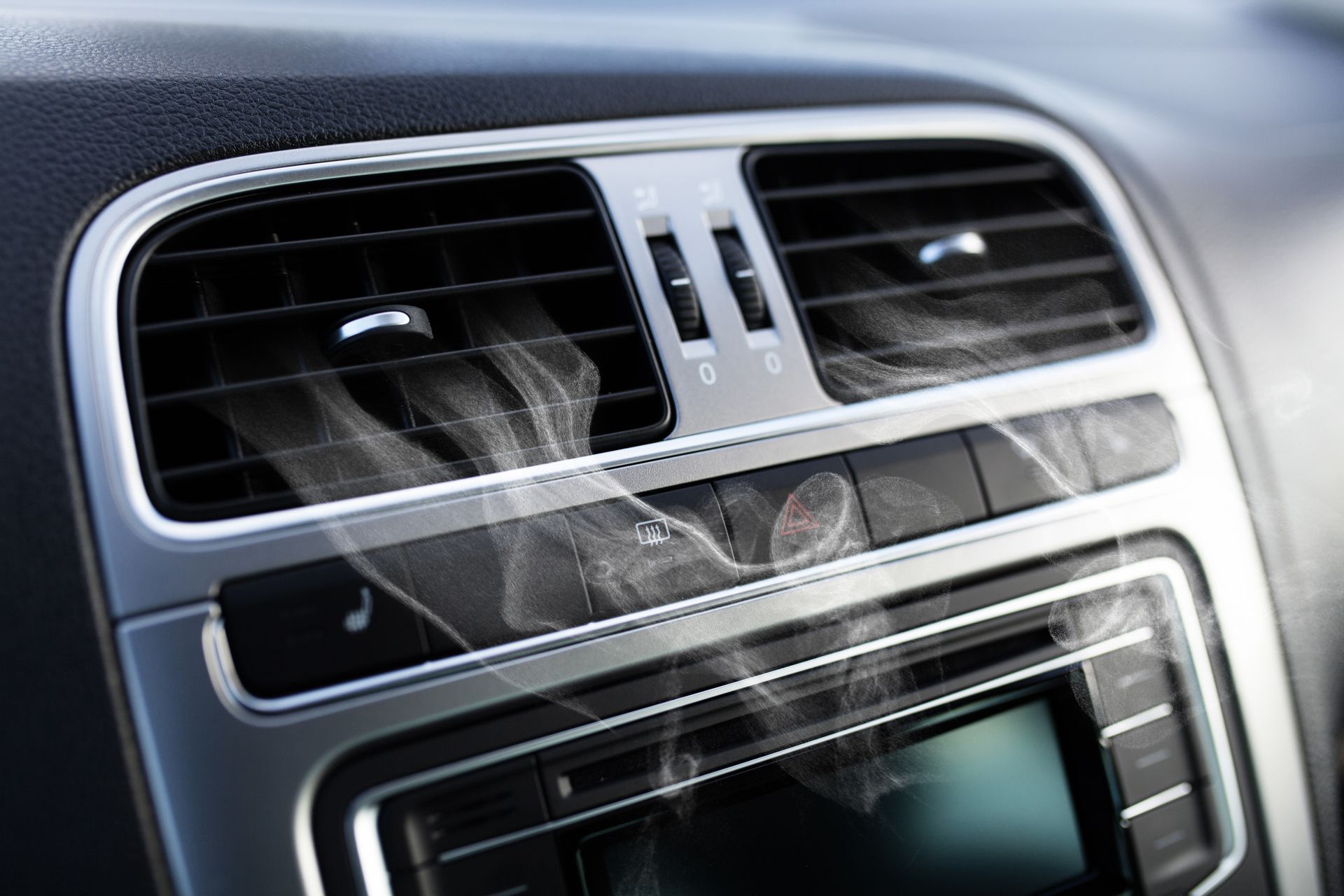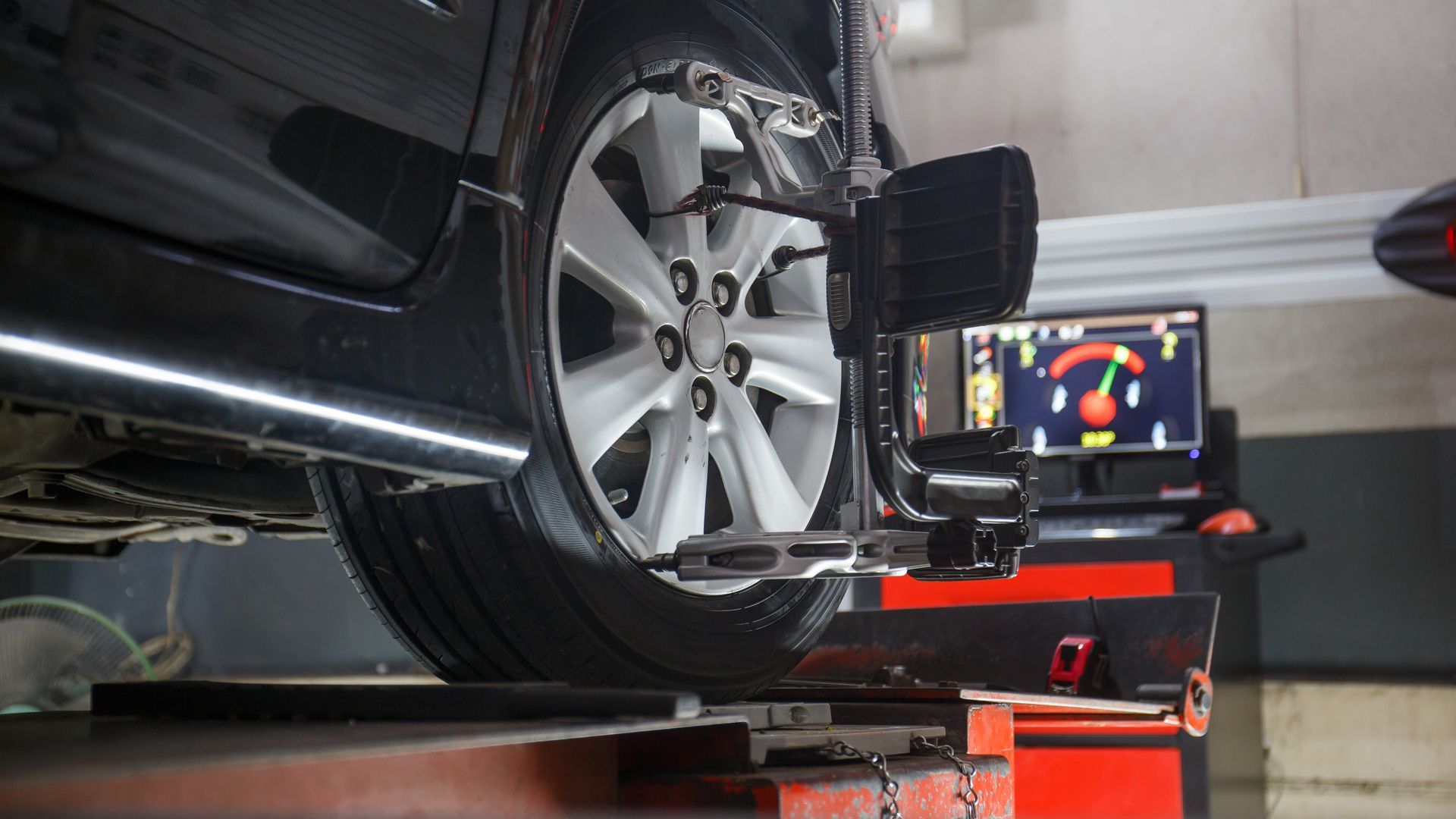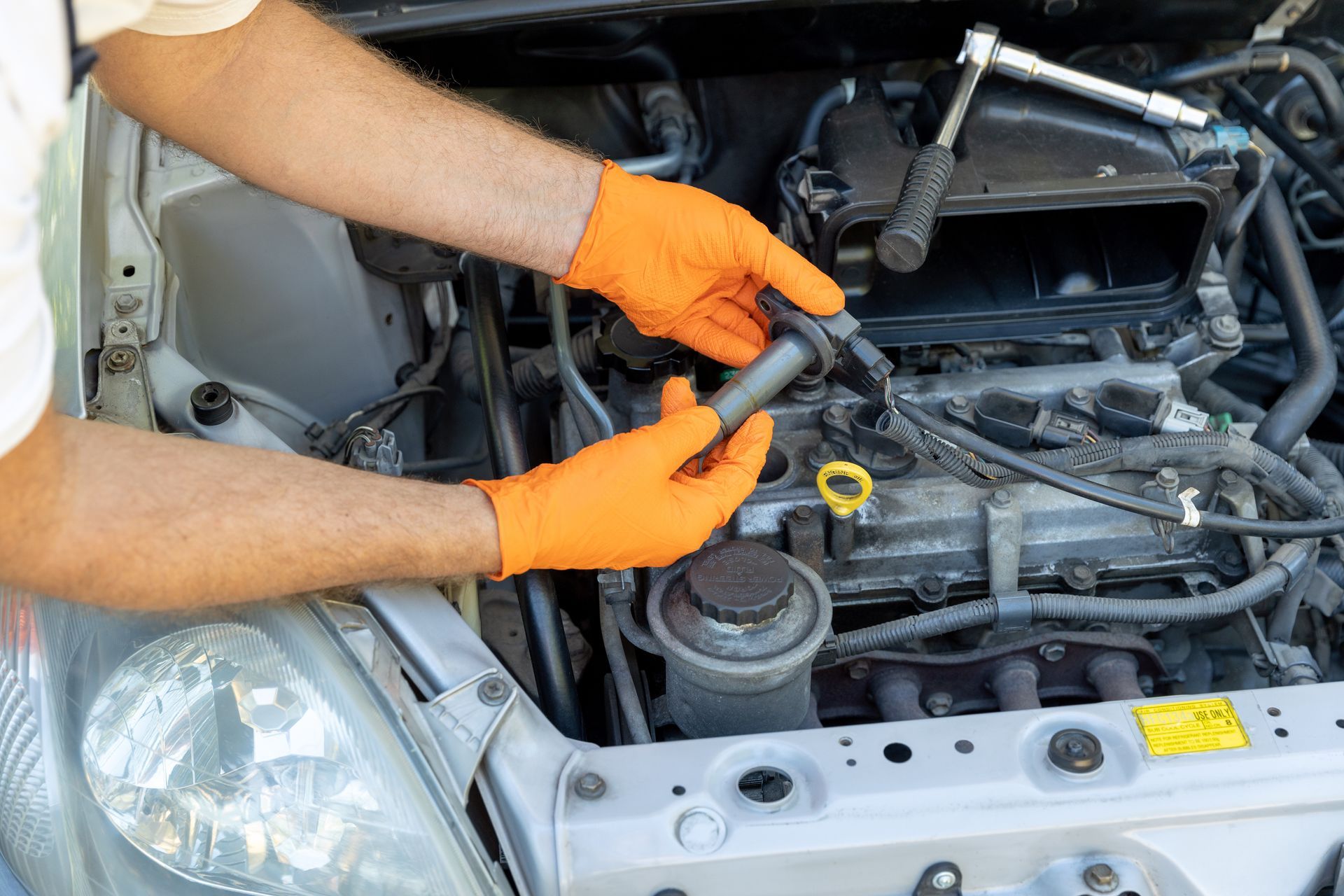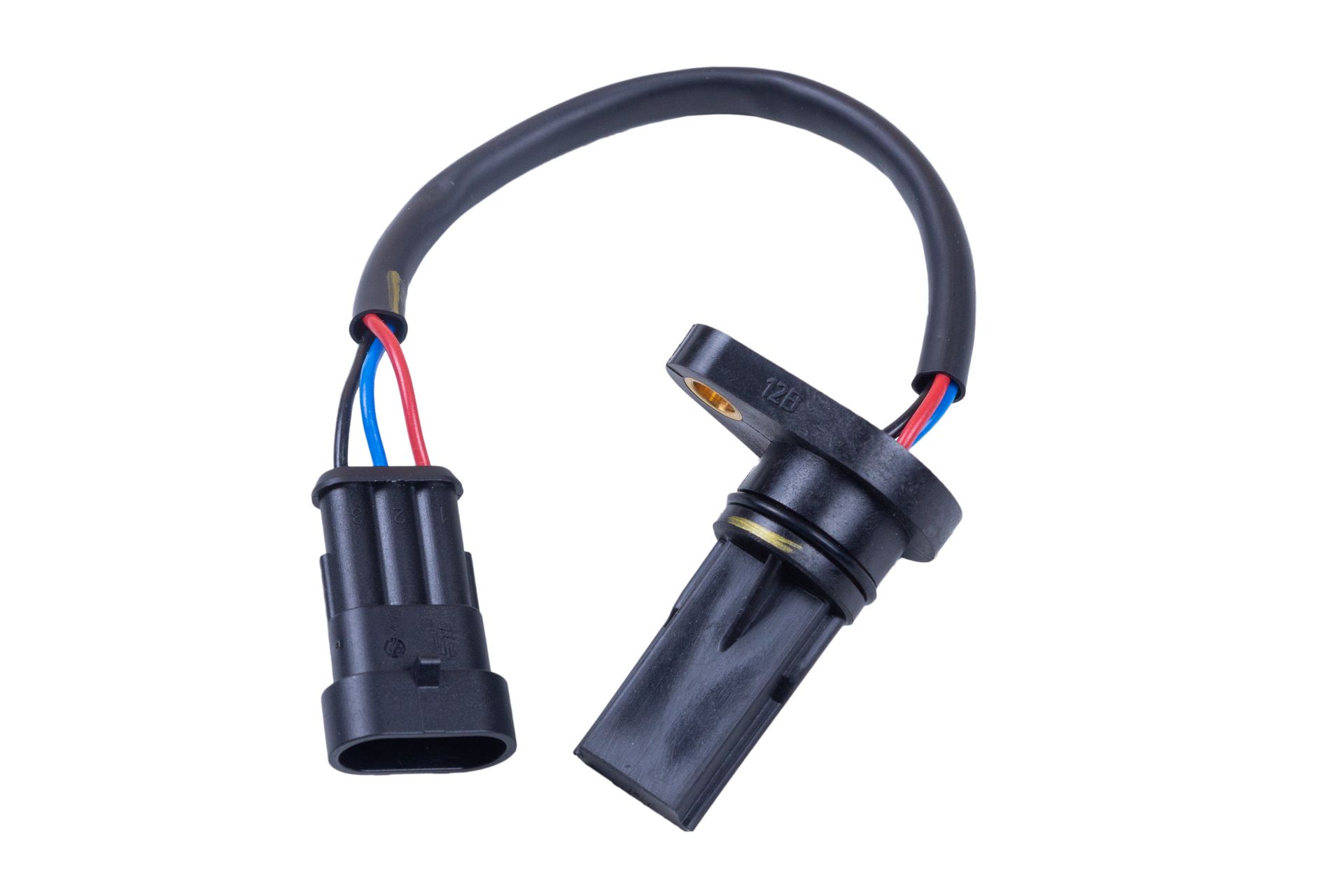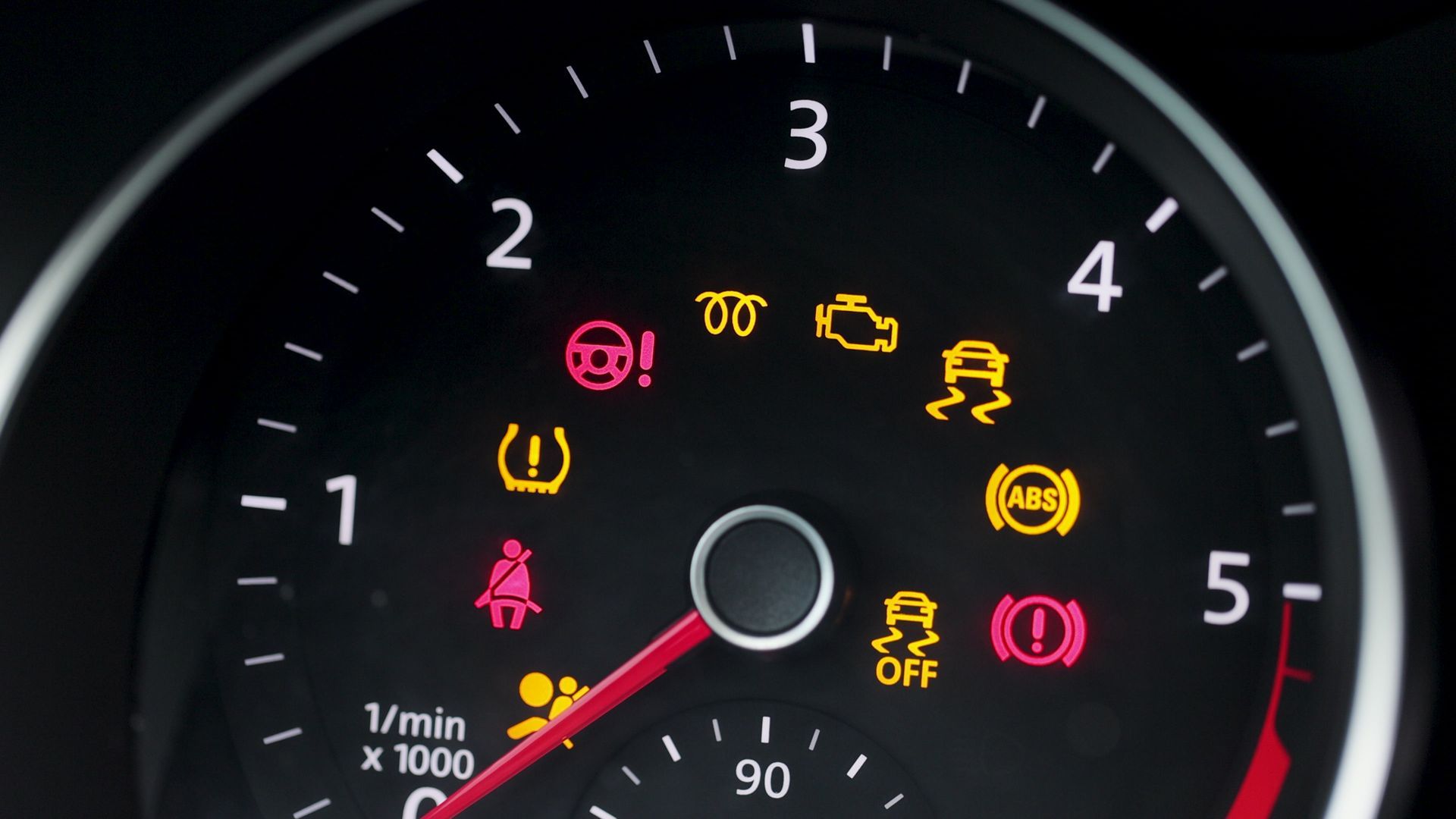When your car’s air conditioning starts blowing warm air instead of cold, a freon leak is one of the most common culprits. Freon or refrigerant, is the substance responsible for absorbing heat from the cabin and helping your A/C system produce cold air. If there isn’t enough refrigerant in the system, your A/C won’t function properly, and the most likely reason for low refrigerant is a leak.
But where does that refrigerant go, and what causes it to escape in the first place? Let’s look at the most common sources of freon leaks and how they can affect your vehicle.
Aging or Damaged Rubber Seals and O-Rings
Over time, the rubber seals and O-rings in your A/C system can become brittle and lose their ability to maintain a tight seal. These seals are found throughout the system, including where hoses connect to the compressor, condenser, and evaporator. As the rubber deteriorates due to heat, vibration, and age, tiny gaps can form that allow refrigerant to escape slowly.
These types of leaks are usually small but persistent, and they often go unnoticed until your system starts losing cooling efficiency. You may not even realize it’s leaking until you notice the air isn’t getting as cold as it used to.
Worn or Damaged A/C Hoses
The hoses that carry refrigerant throughout your A/C system are under constant pressure, especially when the system is running on a hot day. If these hoses develop cracks or weak spots—either from wear, impact, or rubbing against engine components—refrigerant can leak out.
Sometimes, a pinhole leak may develop, releasing small amounts of freon over time. Other times, a larger crack or split in a hose can cause rapid loss of refrigerant. Technicians often use dye or specialized detection tools to locate leaks in these pressurized lines.
Corroded or Punctured Condensers
The A/C condenser is located at the front of your vehicle, near the radiator. Its job is to release heat from the refrigerant into the outside air. Because of its exposed position, it’s vulnerable to damage from road debris, salt, moisture, and even small rocks kicked up by other vehicles.
Over time, corrosion or punctures can create tiny leaks in the condenser coils or connections. This is a common source of leaks in vehicles that are regularly driven in harsh environments, especially if the protective grille or undercarriage is missing or damaged.
Leaking Evaporators
The evaporator is located inside your dashboard and is responsible for cooling the air that’s blown into the cabin. While it’s not as exposed as other components, it can still develop leaks due to corrosion, especially in humid climates. Mold and bacteria buildup on the evaporator can also weaken its surface over time.
Because it’s hidden deep inside the vehicle, diagnosing an evaporator leak is more complicated. Signs include weak A/C performance and the need for frequent refrigerant top-offs. A dye test or electronic leak detector is typically needed to confirm the source.
Compressor Shaft Seal Failure
The compressor is the heart of the A/C system, pressurizing the refrigerant and circulating it through the system. One of the more complex parts of the compressor is the shaft seal, which prevents refrigerant from leaking where the pulley connects to the compressor.
If the seal fails, refrigerant can leak out slowly, even if the rest of the compressor is still working. This type of leak is often accompanied by oily residue near the front of the compressor, and it may worsen as the compressor ages or the bearings wear out.
Improper Installation or Previous Repairs
Sometimes, a freon leak occurs because of poor installation or a rushed repair. If a hose wasn’t tightened correctly, a seal wasn’t replaced, or a system component wasn’t properly torqued, refrigerant can slowly escape from the system. Even overfilling or using the wrong type of refrigerant can increase pressure and lead to leaks.
It’s important to work with a qualified shop that performs proper A/C service and uses the correct tools and procedures when working on your system.
Advantage AC, Tire & Repair – Expert A/C Diagnostics in Spartanburg, SC
At Advantage AC, Tire & Repair in Spartanburg, we understand how frustrating it is when your air conditioning doesn’t keep up with the heat. If your A/C isn’t cooling like it used to, let our team perform a full diagnostic inspection. We’ll check for freon leaks, inspect all major components, and recharge the system with the correct refrigerant to keep you cool all summer long.
Book your A/C service today and drive in comfort again.

